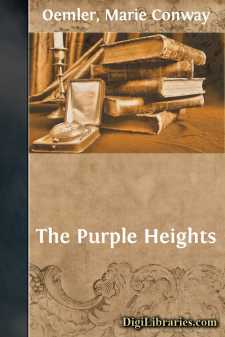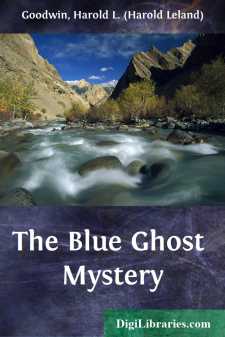Fiction
- Action & Adventure 180
- Biographical 15
- Christian 59
- Classics
- Coming of Age 5
- Contemporary Women 3
- Erotica 8
- Espionage/Intrigue 12
- Fairy Tales, Folklore & Mythology 236
- Family Life 169
- Fantasy 117
- Gay 1
- General 596
- Ghost 32
- Historical 808
- Horror 43
- Humorous 160
- Jewish 25
- Legal 4
- Medical 22
- Mystery & Detective 315
- Political 49
- Psychological 41
- Religious 64
- Romance 159
- Sagas 11
- Science Fiction 730
- Sea Stories 113
- Short Stories (single author) 537
- Sports 10
- Suspense 1
- Technological 8
- Thrillers 2
- Urban Life 31
- Visionary & Metaphysical 1
- War & Military 173
- Westerns 199
Classics Books
Sort by:
by:
Thomas Tapper
MOZART The composer whom we call WOLFGANG AMADEUS MOZART was called Wolferl when he was a little boy. He had a sister, MARIA ANNA, who was called NANNERL. Nannerl was five years older than her brother. She had lessons from her father on a kind of piano called a harpsichord. Here is a picture of one. MOZART'S HARPSICHORD When Wolferl was three years old he used to listen to Nannerl's playing....
more...
CHAPTER I THE RED ADMIRAL The tiny brown house cuddling like a wren's nest on the edge of the longest and deepest of the tide-water coves that cut through Riverton had but four rooms in all,—the kitchen tacked to the back porch, after the fashion of South Carolina kitchens, the shed room in which Peter slept, the dining-room which was the general living-room as well, and his mother's room,...
more...
by:
E. J. Bidwell
VITAL IMPORTANCE OF THE TOPIC The first word of the Layman's Library may properly be a message from Laymen. These are the terms of it. "The hope of a brotherhood of a humanity reposes on the deeper spiritual truth of the Fatherhood of God. In the recognition of the fact of that Fatherhood and of the divine purpose of the world, which are central to the message of Christianity, we shall...
more...
LETTER I On board the ship Syden,Off the mouth of the Indus, Nov. 27th, 1838. MY DEAR FATHER,—We left Belgaum on the 22nd of last month, and arrived at Bombay on the first of this; and we started from Bombay on the 18th, for this place. I had intended to write from Bombay, but everything was in such a state of confusion and bustle whilst we were there, that I literally could find no time or place for...
more...
by:
John C. Gorman
CHAPTER I. The Condition of the Army of Northern Virginia in its Last Days—The Lines in Front of Petersburg—The Battles Around the City—The Final Struggle—Terrible Fighting—The Assaults on Forts Mahone and Gregg—Thrilling Scenes—The Main Bodies of Both Armies Stand and Look Anxiously On—The Confederate Army Severed—The Evacuation of Richmond and Petersburg—The Greetings of...
more...
by:
Shan F. Bullock
INTRODUCTION Mr. Shan Bullock, who needs no introduction to those who read Irish books, has done no better work than in this tribute to one of the noblest Irishmen Ulster has produced in modern times. I refer not only to the literary merits of Thomas Andrews, Shipbuilder, which speak for themselves, but rather to the true insight with which he has fulfilled the precise purpose held in view by those who...
more...
CHAPTER I The Veneration and Invocation of Saints IN THE Creed of the Council of Trent, which the Catholic Church places before the faithful as the Rule of Faith, we read: "I firmly believe that the saints reigning with Christ are to be venerated and invoked." The Church therefore teaches, first, that it is right and pleasing to God to venerate the saints and to invoke their intercession; and...
more...
PETER RABBIT BECOMES ACQUAINTED WITH MRS. QUACK Make a new acquaintance every time you can; You'll find it interesting and a very helpful plan. It means more knowledge. You cannot meet any one without learning something from him if you keep your ears open and your eyes open. Every one is at least a little different from every one else, and the more people you know, the more you may learn. Peter...
more...
by:
Various
INTRODUCTION These pictures of Colonial life and adventure make up a panorama which extends from Powhatan and John Smith, in the days of the Jamestown colony, to Pontiacâs attempt upon Detroit in the period which preceded the Revolution. Here one may read stories which are strange indeed, of King Philipâs War in New England, of a Dutch heroâs exploit on the shores of Long Island Sound,...
more...
A Spooky Invitation Rick Brant moved with infinite care. With one hand he adjusted the focus of his microscope, while with the other he brought the sharp glass tip of the pipette into view. He released his thumb for a fraction of a second and let a drop of blue fluid flow into the field of view. The microscopic monster shot out its defensive weapons, shuddered, and was still. For a moment Rick...
more...











